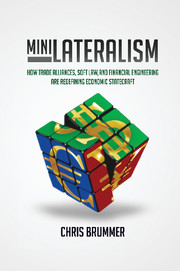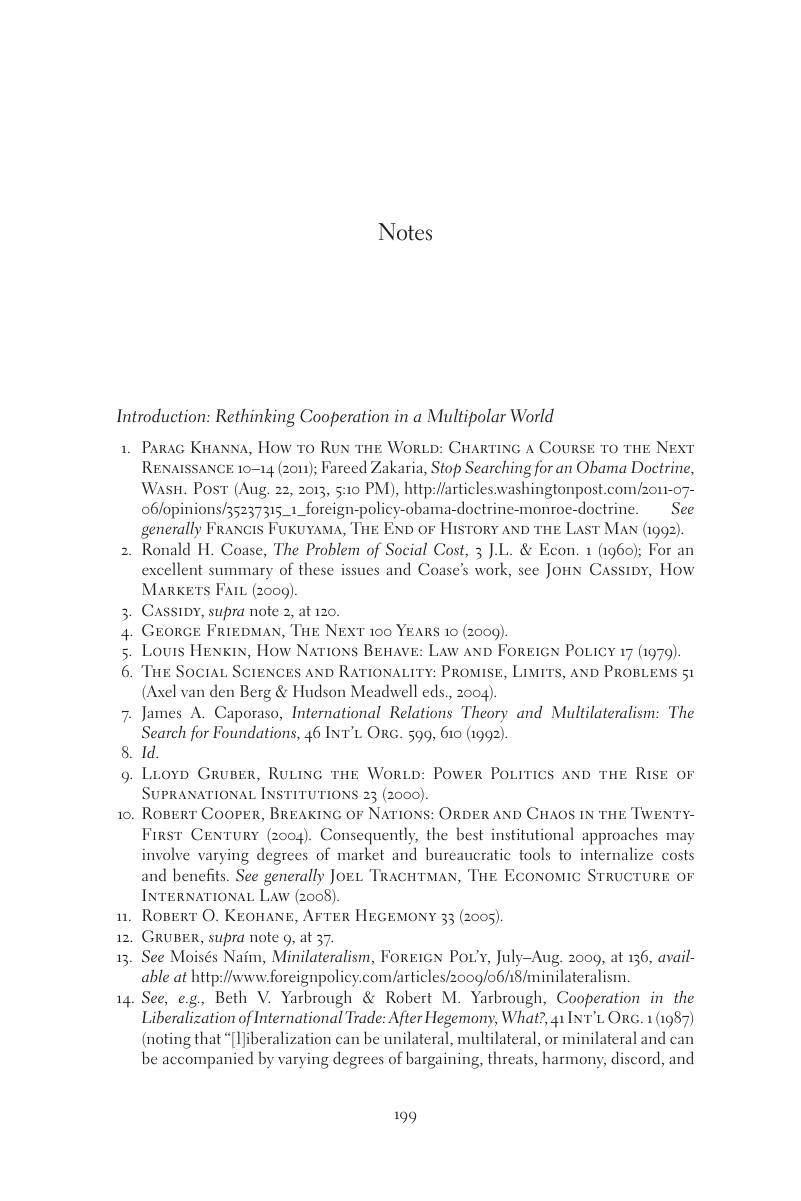 Minilateralism
Minilateralism Notes
Published online by Cambridge University Press: 05 June 2014
Summary

- Type
- Chapter
- Information
- MinilateralismHow Trade Alliances, Soft Law and Financial Engineering are Redefining Economic Statecraft, pp. 199 - 210Publisher: Cambridge University PressPrint publication year: 2014


